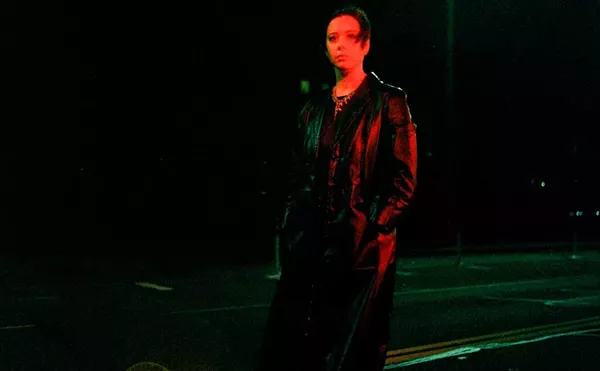
Audio By Carbonatix
[
{
"name": "GPT - Leaderboard - Inline - Content",
"component": "35519556",
"insertPoint": "5th",
"startingPoint": "3",
"requiredCountToDisplay": "3",
"maxInsertions": 100,
"adList": [
{
"adPreset": "LeaderboardInline"
}
]
}
]
It may seem a bit early in the year to talk about the best recordings of 1999, but this wonderfully bracing complete opera of Mozart’s comedy will almost certainly appear on more than a few lists. The reason isn’t because of the star power of any single vocalist, but of the whole conception and attitude of the recording, due in no small measure to the sterling conducting of René Jacobs. He leads the Concerto Köln on period instruments at an invigorating clip without sacrificing musical or dramatic nuance. The overture is overflowing with high spirits and taken at a hell-bent-for-leather pace. Still, the orchestra performs with sharp articulation and a clear sense of dramatic purpose. Even the recitatives, which usually make 18th-century operas drag, are refreshingly lively.
Cosìis sometimes unfairly considered a poor stepsister of Mozart’s better-known The Marriage of Figaro. But in many ways, Così has the edge over Figaro. Whereas Figaro is often merely buffoonish, Cosiìhas a dark side to its comedy, and it’s underscored well in this recording. However frothy the opera seems, there’s a cynical underpinning of infidelity that puts a damper on the humor.
It helps immeasurably that the Belgian-born Jacobs is also a singer. Although he has scaled back on singing in recent years, Jacobs is an accomplished countertenor. As a conductor, he has generous sympathy for the singers on this recording. Even though his tempos are brisk, he doesn’t rush the vocalists.
There isn’t a singer here who is a particular standout, but the ensemble work is top-drawer, particularly at the end of the first act. Véronique Gens (Fiordiligi) and Bernarda Fink (Dorabella) perform an exquisite "Sisters’ Duet," and Werner Gura and Marcel Boone work similarly well as the spurned men. The maid Dispone too often is played as a feather-brained ditz, but Graciela Oddone brings more depth to the role. Baritone Pietro Spagnoli turns in a strong performance as the cynical Don Alfonso.
The recording also includes an illuminating CD-ROM with features on Mozart, the libretto, the singers, the opera’s history and a question-and-answer session with Jacobs.





